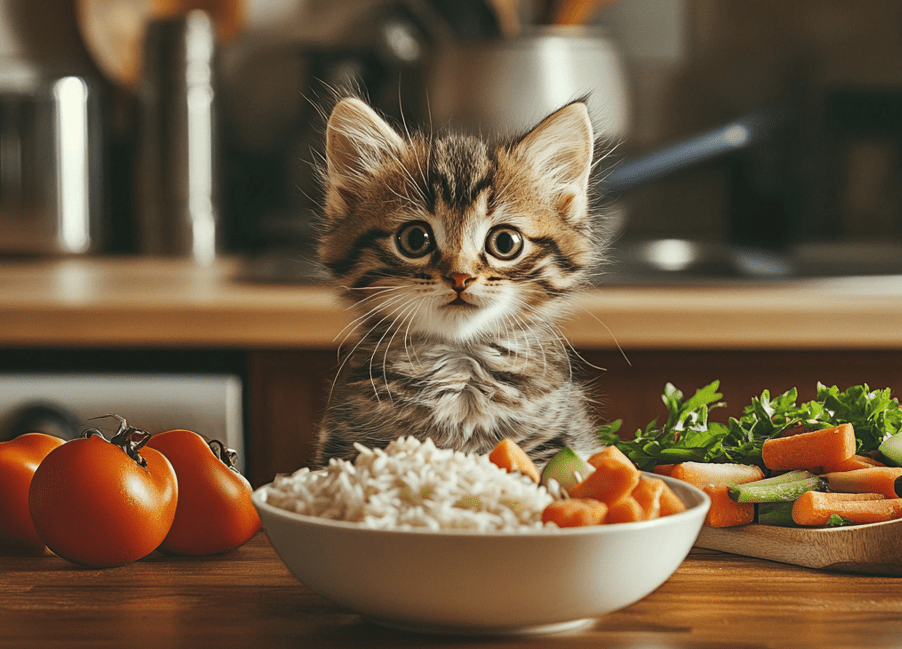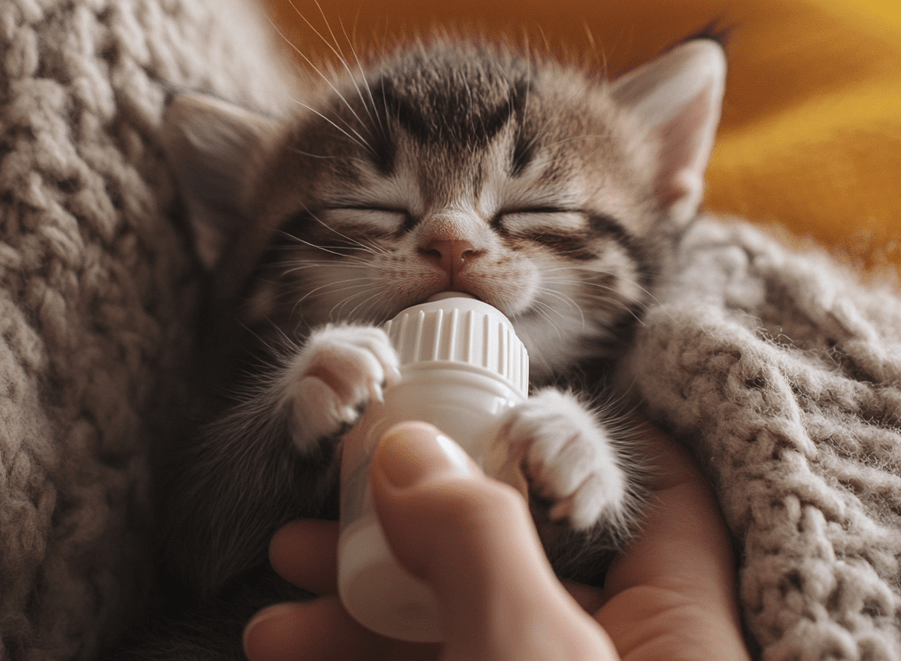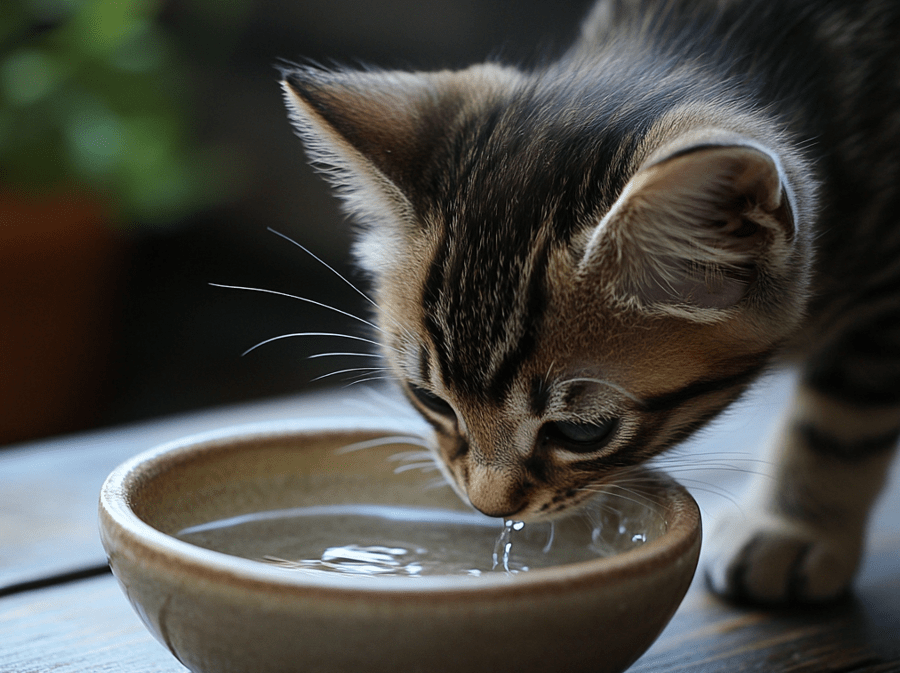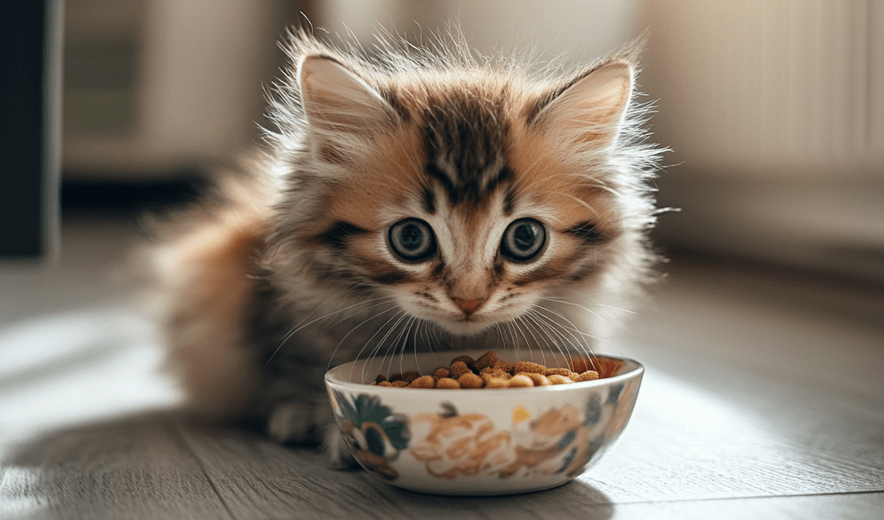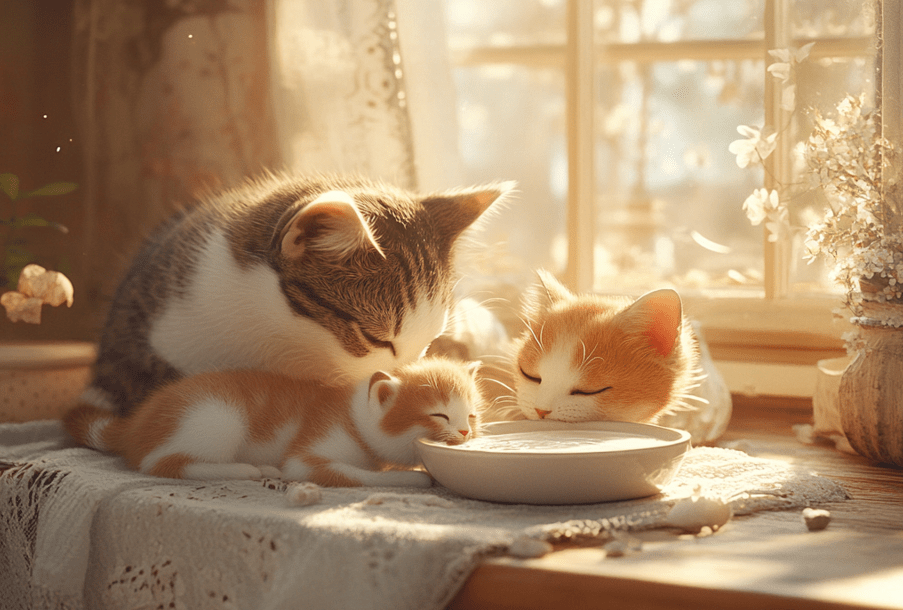
Kittens nursed their mothers after birth, but what about adult cats? As an animal hormone, not all cats can digest it as well as others; however many feline bodies are instinctively drawn to the creamy texture and taste. To be safe, it is best to avoid giving your cat milk and dairy after weaning. This article will take you through all that you should know about the safety of milk for kittens and cats in general, providing a basis on which to rely while making decisions regarding their nutritional intake.
To watch the summary of this article, just watch this video-
Can a Cat Drink Milk Safely?
In theory, cats can drink milk, but it is not always a great idea. Cats can be lactose intolerant, which means they are not able to properly digest the sugar that is found in milk. Like lactose intolerant humans, cats can suffer from some discomfort as a result of digesting milk such as pain in its stomach or diarrhea.
However, please note that some cats will be able to cope with occasional low intake without any problems. If they do, you can cautiously give them some milk as an occasional treat only if it has no adverse effects after the fact
How Often Can Cats Drink Milk?
If your cat seems to handle milk fine, you might be asking yourself how often is it ok for you to give them milk. It is very important to check with your vet before adding milk into the diet of cats. So long as your cat is on the right development plan under approval of a vet, they can have cow milk once or twice a week. Try to keep the serving size down to 1 Tbsp. per serving, and enjoy it as an occasional treat or dessert.
Give lactose-free milk, as an alternative to real dairy with the digestive upset symptoms of intolerance.
Can Kittens Drink Milk?
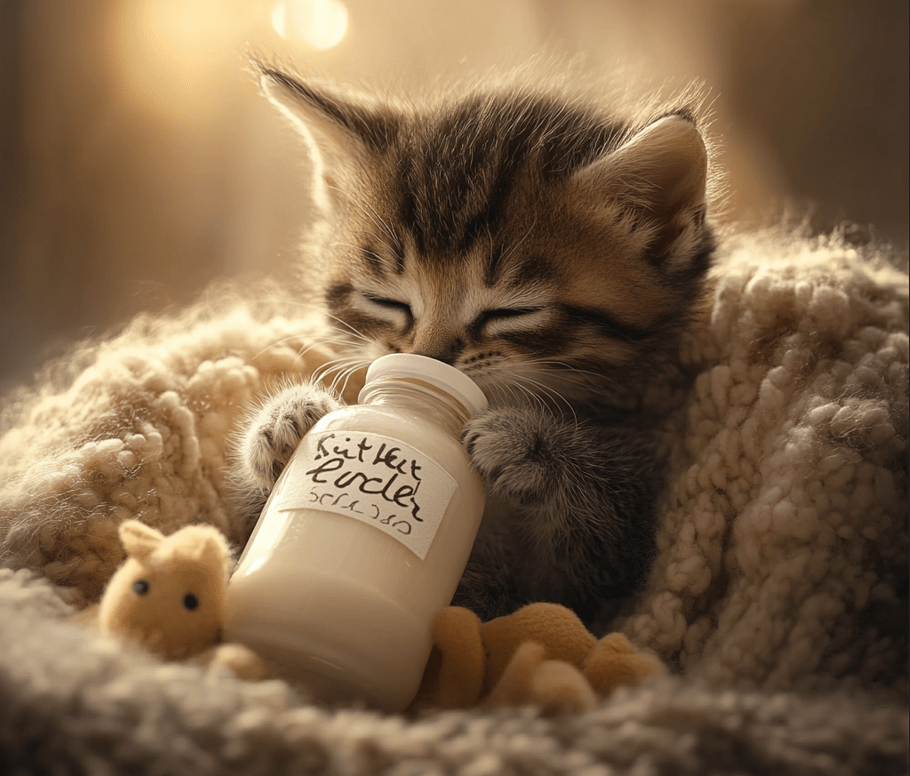
Just like newborn human babies, kittens thrive on their momma’s milk for nutrition. They contain all the important nutrients vital for health and growth.
This is because kittens are born with an enzyme called lactase, which specifically exists to break down lactose— the naturally occurring sugar in milk. Lactose is broken down by the lactase enzyme into two smaller sugar molecules, glucose and galactose, which can be absorbed more readily wherever in the bloodstream. Kittens are usually weaned around 4-5 weeks. They have a limited period after nursing ends where they can produce lactase, leading to many instances of subsequent intolerance.
While a kitten’s body is meant to be able to digest the formula of its own mother, cow milk does not have anything in it to benefit them at all. Kittens probably need cow milk supplemented with enzymes that it lacks to properly process and so shouldn’t be drinking much of, as we know this can give them diarrhea or lead to dehydration
What Is the Frequency of Giving Milk to Kittens?
Because their digestive systems are sensitive, you should avoid cow’s milk and other milk substitutes like soy or almond. This milk is too hard for them to digest and can make the fall sick as well.
The safest option is a kitten milk replacement formula if you are caring for an orphaned young kitten that has been separated from their mother too early. Designed to mimic the balance of nutrients found in mother cat milk, these formulas are often much easier on a kitten’s digestive tract. Just like infant formula for humans, these are full of nourishment without the risk of a little kitten tummy turmoil.
Downsides of Milk for Cats
Most adult cats have trouble digesting lactose so… milk intoxication! This may cause problems like upset stomach or loose bowel movements. Dehydration is dangerous to your cat which might result due to diarrhea.
Signs that your cat might be lactose intolerant:
1.Bloating
2.Vomiting
3.Gas
4.Abdominal discomfort
5.Upset stomach
6.Possible weight gain leading to (potentially excess)weight and obesity
As with people, dairy allergy in cats is not an uncommon thing. Red or scaly skin is a common sign of dairy allergies in cats. If you feel your cat is itching too much, it’s always a good idea to ask the vet for advice about an allergy and possible treatments at home
Why Milk May Be Good For Cats
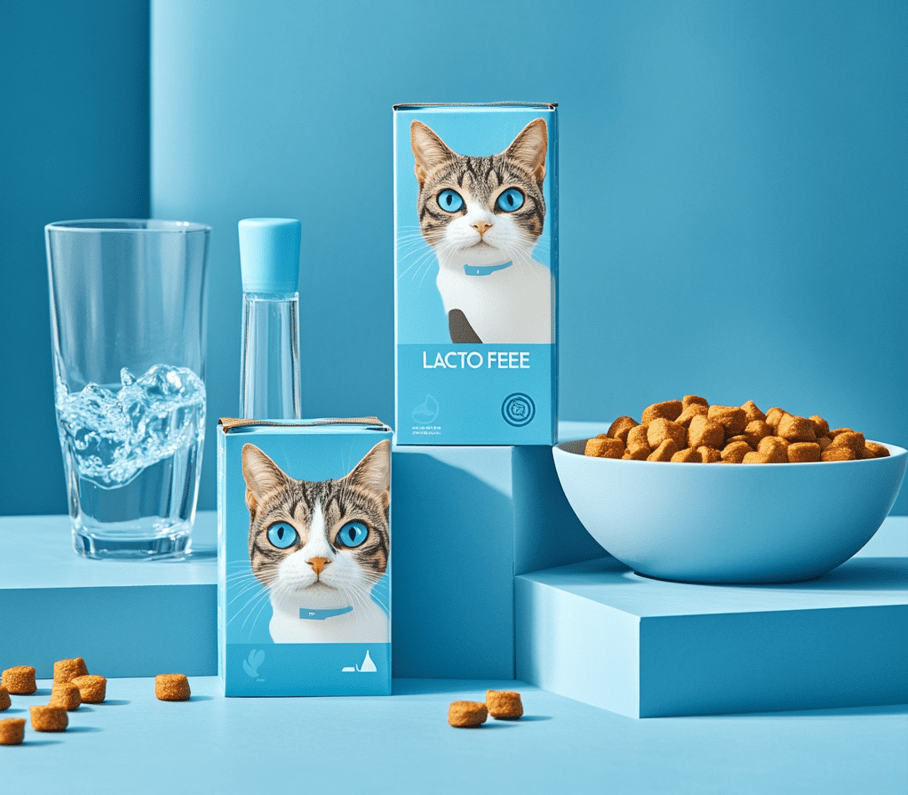
Only a tiny percentage of adult cats can handle dairy without any issues since most are lactose intolerant. In these exceptional cases, milk can provide a few benefits here and there. The milk has proteins and calcium that make you keep a healthier diet.
Milk is high in fat, so milk may be appropriate for underweight cats or those that cannot eat solid food. Plus, lots of cats like the taste and it makes a nice occasional treat.
How to Feed Cats Milk
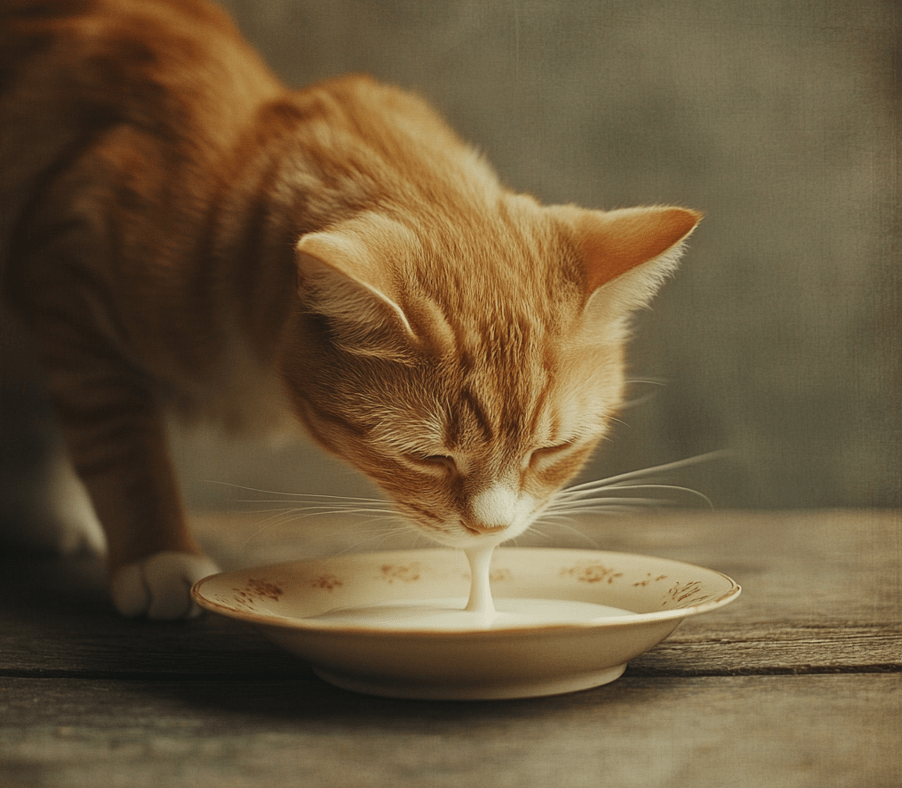
If feeding milk to a cat, there are a few precautions you need to take. And even if your cat tolerates it well, give milk as a little treat and in quite small amounts. Milk should not account for more than 10% of your cat’s total daily caloric intake, because too much milk can cause digestive problems.
As a safer alternative, offer lactose-free milk on the label list or cat special formulas of milk. These options are intended to be fed alongside your cat’s regular food for a balanced diet. However, also ask your vet and see if it can be something to add more regularly into your cat’s diet.
Another obvious one is keeping your cat hydrated as this will help aid kidney function and prevent dehydration. Cat milk can lead to dehydration so provide plenty of fresh drinking water in addition. Ensuring they are well hydrated is super important for all aspects of their health.
What Are Milk Supplements?
For those cats that genuinely love milk, they may benefit from owners planning to give them special items such as a few drops of buttermilk or even supplementing with tepid bull’s foot jelly and/or whey. Cats and kittens have their own dairy products that are specially formulated for them. Kittens do not have the proper enzymes to digest cow’s milk, and giving them cow’s milk can cause diarrhea or gas. For bigger cats like adult kitties on the other hand a different selection is available starting from milk supplements. It includes milk replacers as well as non-milk products such as lactose-free milks (often called calf-feeding supplements).
This way sharing your milk with a cat can give you an idea and share one more thing or trust that gives life to strengthen the relationship between both of them.
If your cat eats Milk, What Happens?
Most dairy products can be hard for cats to digest, but many are actually OK and pretty good. Lucky for us most adult cats can tolerate little portions of low lactose cat-friendly dairy products like firm cheeses, yogurt and also sour cream as a periodic reward.
These foods, however, should be no more than 10% daily caloric intake for a cat. Cats require nutrients only available in special cat food, … and they probably do not get it all from human foods. I also encourage giving very small pieces of cheese or plain greek yogurt, though in less quantity.
Why Do Cats Drink Milk?
And if cats can get digestive issues from milk, you might wonder why they still seem attracted to it. Simple answer: they taste great. Due to the fact that their mother’s milk is some of the very first foods they consume, cats crave it by nature. Also, the high fat and protein in milk offer a bounty to them
Conclusion
Milk is what we usually see portrayed as the drink of choice for a cat, but truthfully most grown cats are lactose intolerant. Feeding them cow’s milk might result in diarrhea, obesity and an allergy.
Certain cats, nevertheless, can beverage milk with concern. While a small amount of milk is generally safe to give to your cat as the occasional treat, only do so if they like it and are able to digest its components. Kitten milk replacer is recommended for kittens or if you intend to feed your cat with it regularly.
In the end, a well balanced cat food diet is first and foremost. Milk can be a fun and tasty treat for your cat, but the milk intake should not exceed 10% of their caloric needs to keep them healthy, agile.

